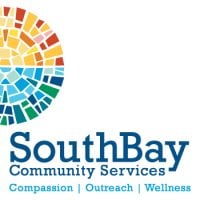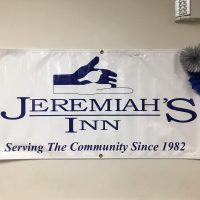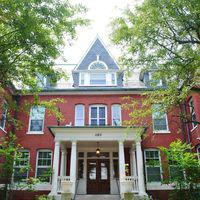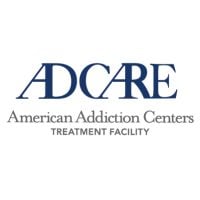Willis Center - Footsteps Supportive Housing Program
Drug Rehab Center in Worcester, Massachusetts
Willis Center - Footsteps Supportive Housing Program offers a comprehensive drug rehab program with evidence-based treatment methods, aftercare support and sober-living/half-way housing to help individuals overcome their addiction and maintain long-term sobriety.
Multiple patients have reported Willis Center - Footsteps Supportive Housing Program as permanently closed.
Research other rehabs in Worcester, Massachusetts, or get help finding an open facility.
About This Massachusetts Facility
Willis Center - Footsteps Supportive Housing Program in Worcester, Massachusetts is a drug treatment facility that offers support and care for individuals looking to overcome alcoholism, opioid addiction, dual diagnosis, and drug addiction. They provide a range of levels of care, including aftercare support, residential treatment, drug rehab, and sober-living/half-way houses. The center aims to create a supportive and nurturing environment for individuals seeking to get sober, ensuring they have access to the necessary resources and guidance to achieve long-term recovery.
The center offers a comprehensive set of services and treatment methods to address addiction and substance abuse issues. They provide personalized treatment plans tailored to each individual's specific needs, focusing on holistic approaches that address both the physical and psychological aspects of recovery. The facility offers various evidence-based therapies, such as cognitive-behavioral therapy (CBT), individual counseling sessions, group therapy, and addiction education. Additionally, they provide support for individuals with dual diagnosis, addressing both the addiction and any underlying mental health issues. The program also emphasizes aftercare support, equipping individuals with the necessary resources and skills for sustained recovery beyond their time at the facility.
Genders
Ages
Modality
Additional
Conditions and Issues Treated
Opioid addiction is the result of repeated use, or abuse, of opioid drugs. It is recommended for people who are dependent on opioids, or who have a high risk for dangerous health concerns, to seek professional treatment. Treatment plans usually include behavioral therapy and medication-assisted treatment.
Opioid drugs include: fentanyl, heroin, methadone, oxycodone, and oxymorphone.
Opioid addiction treatment is beneficial for:
- People who have a history of severe withdrawal.
- People with a high risk for dangerous health concerns.
- People having difficulty overcoming opioid addiction on their own.
Levels of Care Offered at Willis Center - Footsteps Supportive Housing Program
This center offers a variety of custom treatment tailored to individual recovery. Currently available are Aftercare Support, Drug Rehab, Residential, Sober-Living / Half-Way, with additional therapies available as listed below.
A Sober Living Home (SLH) is a term used to describe houses where people recovering from addiction can stay. The goal of these places is to provide immediate support and protection that the addict needs and force them to live a life free from substance abuse. SLH’s typically allow the addict to live there for 30, 60, or 90 days.
Residential treatment programs are those that offer housing and meals in addition to substance abuse treatment. Rehab facilities that offer residential treatment allow patients to focus solely on recovery, in an environment totally separate from their lives. Some rehab centers specialize in short-term residential treatment (a few days to a week or two), while others solely provide treatment on a long-term basis (several weeks to months). Some offer both, and tailor treatment to the patient’s individual requirements.
Aftercare support is a service many addicts need to ensure their success at recovery. This service usually includes one-on-one or group therapies, assistance from a sponsor and other types of help designed to make sure the patient continues living a life free from drugs.
Patients also may require medication to help them battle addiction. Some people have been able to successfully recover without additional medications, but others have found that they need help during their transition. Long-term, the patient must take the initiative to attend meetings and receive help from other addicts in recovery.
Therapies & Programs
People in addiction recovery can benefit from individual therapy. This type of therapy involves meeting with a therapist one-on-one. This allows for a personal and trusting relationship to be built so that the patient can be truly themselves and express any emotions they feel. Individual therapy leads to greater understanding and peace about your triggers for addiction and coping strategies to prevent relapse.
Family therapy is a type of group problem-solving that aims to improve communication and relationships between the patient, their family, and sometimes friends. The main goal of family therapy for drug addiction is to create an environment where communication can occur without judgment, hostility, or blame. The therapist is with the family as they learn to communicate with each other differently, especially with the addict when s/he is using.
Group therapy sessions are held in rehab facilities, clinics, churches or community centers that offer drug addiction treatment. People who attend these groups are encouraged to voice their feelings and support other addicts in recovery. This helps group members strengthen their own recovery program while cheering on others who are struggling with sobriety.
Group therapy sessions provide recovering addicts with a chance to cope with everyday situations that many face. Group therapy sessions are held in rehab facilities, clinics, churches or community centers that offer drug addiction treatment.
People who attend these groups are encouraged to voice their feelings and support other addicts in recovery. This helps group members strengthen their own recovery program while cheering on others who are struggling with sobriety.
Life Skills Services offered at Willis Center - Footsteps Supportive Housing Program assists addicts in their recovery by teaching them healthy coping mechanisms that will aid them in becoming sober, focussing on helping people enter into, and maintaining long-term sobriety. Willis Center - Footsteps Supportive Housing Program provide Life Skills Services at varying levels of intensity, specific to the needs and requirements of each patient.
Benefits of Life Skills Services offered at Drug Treatment Centers in Massachusetts:
- Restores hope and empowerment — Helps addicts believe that recovery is possible and instills a new confidence in their ability to achieve a positive, drug-free future
- Enhances family involvement — Encourages families to get involved in the recovery process and supports their understanding and encouragement of healthy behavior.
- Increases patient’s compliance — Helps patients take responsibility for and ownership of their recovery and encourages continued progress
- Reduces relapse rates — Encourages long-term abstinence and emphasizes the importance of establishing sober support systems.
Additional Details
Specifics, location, and helpful extra information.
Worcester, Massachusetts 1609 Phone Number(508) 756-8320 Meta DetailsUpdated November 25, 2023
Staff Verified
Patient Reviews
There are no reviews yet. Be the first one to write one.
Worcester, Massachusetts Addiction Information
Massachusetts has one of the highest rates of drug abuse in the country. More than half a million Massachusetts residents abuse alcohol while more than 1.5 million use illegal drugs each year. This drug and alcohol usage is the cause of over 8% of all deaths in the state. In 2017, Massachusetts ranked in the top 10 of the states with the highest opioid overdose rates.
Every day more than 20 people are abusing drugs or alcohol in Worcester, Massachusetts. 9.7% of people in Worcester abuse drugs. 35.3% of high school students report having drunk alcohol. There were 163 overdose deaths related to drugs in Worcester in 2016. Treatment must be individualized to address the specific needs of the person.
Treatment in Nearby Cities
- Arlington, MA (35.5 mi.)
- Chelmsford, MA (32.9 mi.)
- Burlington, MA (36.0 mi.)
- Lincoln, MA (28.7 mi.)
- Cambridge, MA (37.0 mi.)
Centers near Willis Center - Footsteps Supportive Housing Program
The facility name, logo and brand are the property and registered trademarks of Willis Center - Footsteps Supportive Housing Program, and are being used for identification and informational purposes only. Use of these names, logos and brands shall not imply endorsement. RehabNow.org is not affiliated with or sponsored by Willis Center - Footsteps Supportive Housing Program.





